The American Urological Association estimates that 150 million UTIs occur worldwide annually and cost up to $6 billion USD in healthcare costs.
UTIs begin at the urethra, colonize the bladder, and in some cases can ascend to the kidneys causing pyelonephritis.
There are many factors that can predisposed to recurrent urinary tract infections. Some of the more readily described risk factors would include having had a prior UTI, poor hygiene, sexual activity or the inability to completely empty the bladder.
Two additional factors that perhaps are less commonly well known are the presence of host iron scavenging antimicrobial proteins called siderocalins and the connection between the host gut bacteria or microbiome and the bacteria found in the urine.
E Coli that cause UTIs
E coli bacteria cause the vast majority of urinary tract infections and in this situation are labeled uropathogenic E coli or UPEC. One feature of UPECs is their ability to secrete siderophores. These are small proteins that bacteria produce to bind iron that they need to divide and multiply. Early on in an infection as part of our natural defense system, bladder cells can produce siderocalin. This is an iron scavenging protein that can keep iron away from bacteria and help prevent bacteria from flourishing. Researchers have discovered that there is a surprising variability among people as to the amount of siderocalin they produce and its effectiveness.
Jeffrey P. Henderson, MD, PhD, assistant professor of medicine at Washington University School of Medicine in St. Louis was a senior author of the study Human Urinary Composition Controls Antibacterial Activity of Siderocalin published in the Journal of Biological Chemistry. This research indicates that there are steps we can take to make these natural defenses more effective.
“It looks like this protein that’s part of your immune system is able to use metabolites in the diet as grips to hold onto iron and keep it away from pathogenic bacteria,” Henderson says.
What are these helpful metabolites in the diet?
Prior studies have shown a combination of diet, gut microbial metabolism, and host metabolism can affect the production of phenolic metabolites. Urinary catechols are one such aromatic and are associated with consumption of polyphenol-rich foods such as dark berries. As has been previously reported, Aronia berry is the richest common dietary source of polyphenols! The authors concluded that dietary modification to include polyphenol rich foods could be a viable strategy for increasing the effectiveness of host siderocalin production and future UTI prevention.
Host Gut and Urogenital Microbiome Crosstalk Underlying UTIs
Microbiome sequencing of human gut bacteria reveals that a high abundance of either Escherichia or Enterococcus is a risk factor for bacteriuria and symptomatic UTIs (Magruder et al., 2019). In other words, having an overabundance of bacteria in the gut that are more commonly associated with causing UTIs is a strong risk factor. Thänert et al. (2019) were able to show that E.coli is well-adapted to transit between various environments within a host, such as between the human gut and bladder.
One again, healing the gut and promoting a healthy microbiome is critical to our health in so many ways. Certainly immune function takes the forefront but now it is clear that preventing UTIs also begins in our gut. Some of the best ways to promote a healthy microflora is by limiting antibiotics when possible and in the eating of a diet that avoids overly processed foods. Diets rich in prebiotics such as fibers from whole grains (e.g. oatmeal) and beans as well as the polyphenols from fruits and vegetables are a great place to start. Fermented foods can also be a source of both pre and probiotics.
Here are key practices to promote a healthy gut:
Diverse Diet: Consume a wide variety of nutrient-rich foods, including fruits, vegetables, whole grains, lean proteins, and fermented foods. This diversity helps promote a balanced and flourishing gut microbiota, the community of microorganisms residing in the digestive tract.
Fiber-Rich Foods: Incorporate high-fiber foods into your diet, such as legumes, nuts, seeds, and whole grains. Fiber serves as a prebiotic, nourishing beneficial bacteria in the gut and promoting their growth.
Probiotics: Include foods rich in probiotics, such as yogurt, kefir, sauerkraut, and kimchi. Probiotics are live beneficial bacteria that contribute to a healthy gut microbiome and aid in digestion.
Limit Processed Foods and Sugar: Reduce the intake of highly processed foods and added sugars. These substances can disrupt the balance of gut bacteria, leading to inflammation and negatively impacting gut health.
Stay Hydrated: Drinking an adequate amount of water is crucial for overall health, including gut function. Proper hydration supports the mucosal lining of the intestines, helping to maintain a barrier against harmful bacteria.
Manage Stress: Chronic stress can negatively impact gut health. Practice stress-reducing activities such as meditation, deep breathing, or yoga to promote a healthy balance of gut microorganisms.
Adequate Sleep: Quality sleep is essential for overall health, including gut health. Aim for 7-9 hours of sleep per night to support the body’s natural healing and restoration processes.
Regular Exercise: Engage in regular physical activity to promote a healthy gut. Exercise has been shown to positively influence the composition and diversity of the gut microbiota.
Avoid Overuse of Antibiotics: Only use antibiotics when prescribed by a healthcare professional, and follow their instructions. Antibiotics can disrupt the balance of gut bacteria, potentially leading to digestive issues.
By adopting these practices, you can create an environment that fosters a diverse and thriving gut microbiome, promoting better digestion, nutrient absorption, and overall health.

